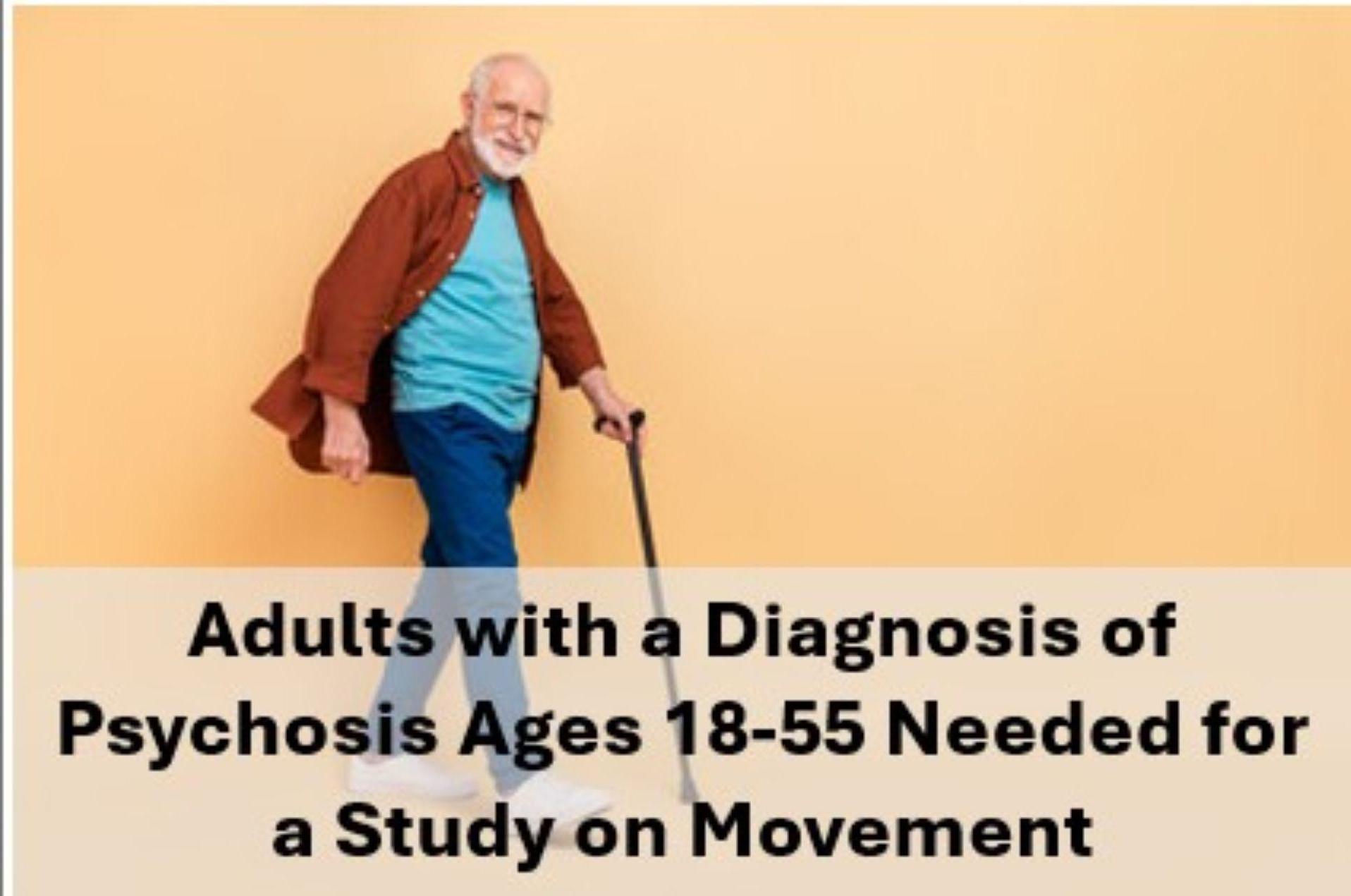How Do You Move? Participants Needed for MRI Study
Alexandra Moussa-Tooks
Primary Investigator

Recruiting
18 years - 55 years
All
Phase
N/A
100 participants needed
1 Location
Brief description of study
Why is this study being done?
The purpose of this study is to understand how movement and sensory characteristics (e.g., posture, walking, hand and arm based reaching) present in psychotic disorders over time.
Who can take part?
We are looking for individuals, ages 18-55, who have been diagnosed with Schizophrenia, Schizoaffective Disorder, Schizophreniform Disorder, or any other type of psychotic disorder.
Detailed description of study
What will happen during the study?
If you are eligible and choose to participate,
You will return to the lab 5 times over 6 months.
- You will do some tests on the computer, as well as some paper and pencil tests, and some active movement tests where you will make hand or walking movements.
- You will be asked to answer questions about your emotions, thoughts, and experiences, and if you have a psychiatric diagnosis, asked additional questions about symptoms.
- Additionally, you will receive a brain scan.
- Study visits occur in person at our lab in Bloomington, Indiana, Department of Psychological and Brain Sciences at Indiana University Bloomington. Address, 1101 E 10th St. Rm. A208A
- Each study visit is expected to last between 2 to 5 hours.
Incentive/compensation
- You will receive $20/hour for participating in the clinical assessments, self-report questionnaires, and motor/cognitive tasks.
- You will also receive an additional $30/hr for time participating in neuro-imaging.
Additional information
Study title: Longitudinal Assessment of Motor Disturbances in Psychosis Course and Recovery
The study is being conducted by Dr. Alexandra Moussa-Tooks at IU Bloomington in the Department of Psychological and Brain Sciences.
To learn more about Alexandra Moussa-Tooks, PhD, and her research interests, please visit this link: https://psych.indiana.edu/directory/faculty/moussatooks-alexandra.html
Eligibility of study
You may be eligible for this study if you meet the following criteria:
- Conditions: Schizophrenia, Schizoaffective, Schizophreniform, Psychotic, Psychosis
-
Age: 18 years - 55 years
-
Gender: All
Inclusion criteria:
- Diagnosis of a primary psychotic disorder (e.g., schizophrenia, schizoaffective disorder, schizophreniform, or brief psychotic disorder)
- Able to communicate in English
- Normal or corrected to normal acuity, normal color vision, and no history of neurological problems
Exclusion criteria:
- Unable to provide written informed consent
- Any medical illness or condition that would interfere with participation in the study. This includes, but is not limited to, uncontrolled diabetes; hypothyroidism, Cushing’s disease, or other significant endocrine condition (treated condition is allowed); demyelinating disease; HIV infection; CNS infection; clinically significant and unstable cardiovascular disease; cancer
- Meets criteria for diagnosis of substance or alcohol use disorder within the past month
- Active substance use and/or positive drug screen at visit 6.
- History of severe head trauma resulting in loss of consciousness for >30 minutes
- Contraindications for neuroimaging including but not limited to: pregnant or may be pregnant; surgery involving a metallic, mechanical, or magnetic implant (e.g., pacemaker, aneurism clip, stimulator); injury by a metallic object that may not have been completely removed (e.g., bullets, shrapnel, BBs); history of welding, grinding or cutting of metal; an injury to the eye involving a metallic object or fragment; claustrophobia; seizures/epilepsy; piercings that cannot be removed;mintrauterine device (IUD); tattoos or tattooed eyeliners possibly containing metal
Updated on
05 Nov 2025.
Study ID: 20551 - SZ

